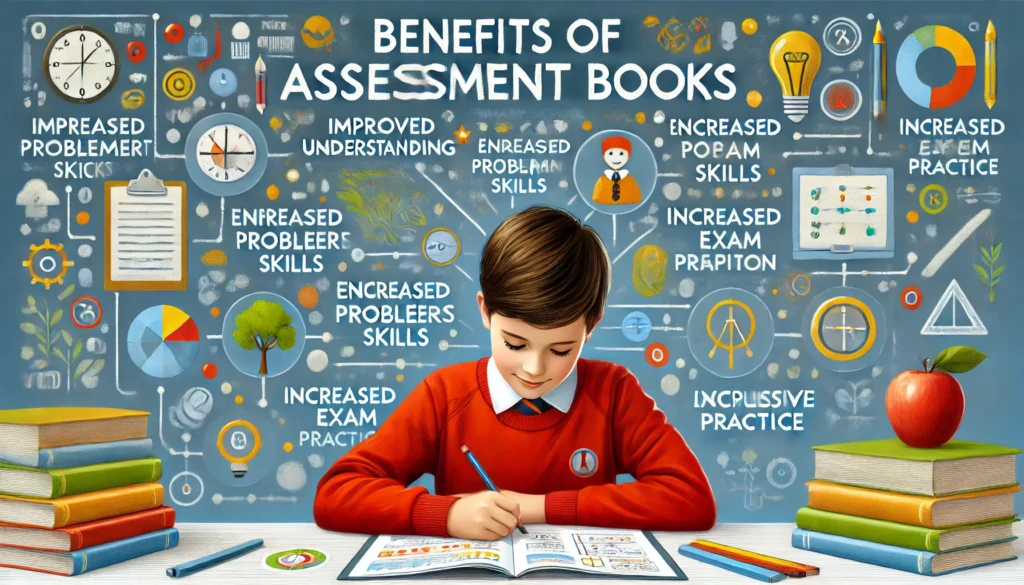Assessment books are usually part of a student’s academic arsenal. These books are usually set by certified teachers or bodies of teachers that are able to craft exam questions in line with the curriculum and syllabus of schools in Singapore.
They are meant to supplement not replace textbooks or workbooks already used in schools. Strategic usage of assessment books can help to improve a child’s learning and improvement in the weaker areas of study.
Although most parents who bought assessment books would prefer the child to complete the book to show they have effectively understood the subjects and application during exams, it is sometimes counter-beneficial to the students where it may deter their love of learning and felt like they are being forced to do assessment books for the sake of completing the book.
Below are some assessment books we have curated for each level and subject from Amazon.sg. Support us by clicking onto them and trying them out to improve the learning experience. (We do earn a little referral coffee ,money from Amazon from your purchases).
Primary 3 Assessment Books
Primary 4 Assessment Books
Primary 5 Assessment Books
Primary 6 Assessment Books

Assessment books for Primary 3 to Primary 6 serve several key objectives in the education system. These assessment books are designed to reinforce classroom learning, providing students with additional practice to master the concepts taught in school. By offering a variety of exercises and problems, they help students develop a deeper understanding of subjects like mathematics, science, and languages.
- Reinforce Learning: Assessment books provide extra practice on topics covered in the curriculum, helping to reinforce what students have learned in class. This repeated exposure ensures better retention of knowledge.
- Skill Development: These books focus on developing essential skills such as problem-solving, critical thinking, and analytical abilities. They include a range of question types, from multiple-choice to open-ended questions, that challenge students to apply their knowledge in different ways.
- Exam Preparation: They are aligned with the national syllabus and often mimic the format of school exams. This familiarizes students with the types of questions they will encounter in exams, helping to build confidence and reduce exam anxiety.
- Self-assessment: They allow students to assess their own understanding and identify areas where they need further improvement. This encourages independent learning and self-motivation.
- Parental Involvement: These books provide a resource for parents to support their children’s learning at home, allowing them to track progress and provide additional guidance when necessary.
Frequently Asked Questions
Are assessment books necessary for Primary School students?
This depends on your child’s learning style and needs. Assessment books can provide extra practice and identify areas for improvement, but they aren’t always essential.
What subjects typically use assessment books in Primary School?
English, Math, Science, and Chinese are the main subjects where assessment books are commonly used. Higher Chinese may also be considered.
How do I choose the right assessment book for my child?
Consider your child’s ability level, preferred learning style, and specific areas that need reinforcement. Look for books with graded difficulty and clear explanations.
What are some popular assessment book publishers in Singapore?
Popular publishers include Marshall Cavendish Education, EPH (Educational Publishing House), Longman, and SAP (Singapore Advice Publications).
Should I prioritize assessment books with past year exam papers?
Past year papers can be helpful for familiarizing your child with exam format, but focus on building a strong foundation in core concepts first.
Are there alternatives to assessment books?
Yes! Consider online resources, worksheets from your child’s school, or engaging in real-world activities that reinforce learning.
How much time should my child spend on assessment books?
Focus on quality over quantity. Short, focused practice sessions are more effective than long, tedious ones.
Can assessment books overload my child?
Yes. Be mindful of your child’s workload and choose books that complement their learning, not overwhelm them.
What if my child finds assessment books boring?
Look for interactive or activity-based assessment books. Make learning fun by incorporating games or rewards.
Where can I buy assessment books in Singapore?
Assessment books are widely available at bookstores like Popular and MPH, or online retailers. The assessment books that we have recommended in each individual sections are suited to grades and are available from Amazon.sg